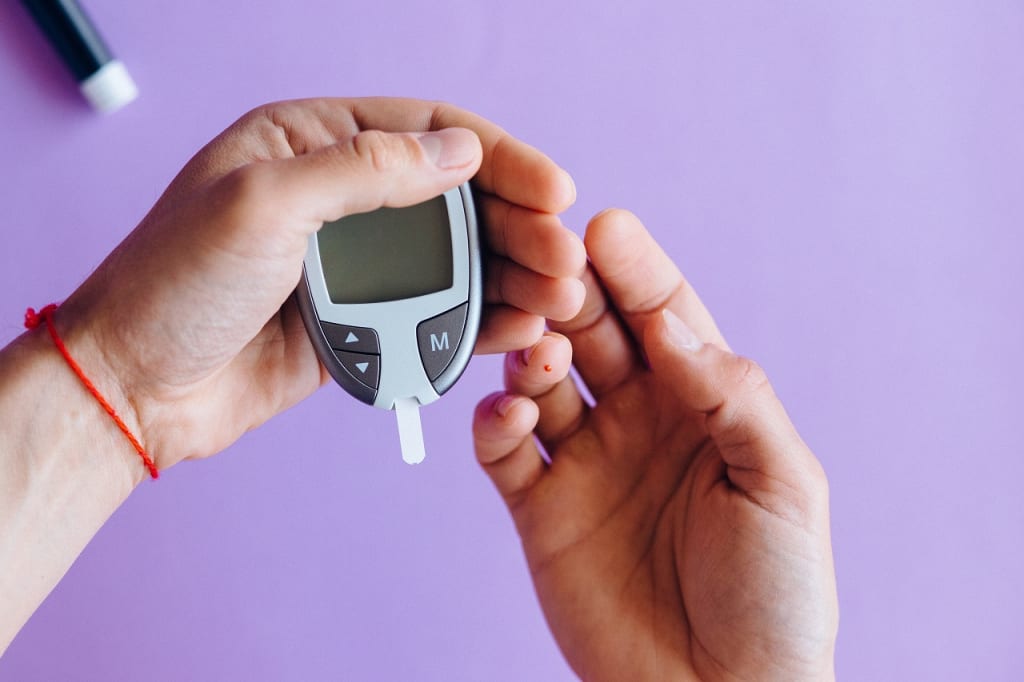Type 2 Diabetes Prevention: Lifestyle Choices that Make a Difference
Proactive Prevention: Steps You Can Take Today to Reduce Your Risk of Type 2 Diabetes

Type 2 diabetes is a chronic metabolic disorder characterized by high blood glucose levels due to insulin resistance and inadequate insulin secretion. The disease results from a complex interaction of genetic, environmental, and lifestyle factors.
Although genetics plays a significant role in the development of type 2 diabetes, modifiable risk factors such as obesity, physical inactivity, and poor diet also contribute significantly. Therefore, implementing strategies to reduce these modifiable risk factors can play a vital role in preventing and managing type 2 diabetes.
Lifestyle Modifications
Lifestyle modifications are the first-line approach to prevent and manage type 2 diabetes. These modifications include diet, physical activity, and weight management.
Diet
A balanced and healthy diet that includes whole grains, fruits, vegetables, lean protein, and healthy fats can reduce the risk of developing type 2 diabetes
The Mediterranean diet, which is rich in fruits, vegetables, whole grains, and healthy fats, has been associated with a reduced risk of type 2 diabetes.
On the other hand, a diet high in processed foods, saturated fats, and added sugars is associated with an increased risk of type 2 diabetes.
Therefore, reducing the intake of processed foods, sugary drinks, and saturated fats can reduce the risk of type 2 diabetes.
Physical Activity
Physical activity is also an essential component of lifestyle modifications to prevent and manage type 2 diabetes.
Regular physical activity can improve insulin sensitivity, glucose uptake, and lipid metabolism
The American Diabetes Association recommends at least 150 minutes of moderate-intensity aerobic exercise per week, spread over at least three days per week, with no more than two consecutive days without exercise
Resistance training can also improve glycemic control and insulin sensitivity
Therefore, implementing physical activity into a daily routine can reduce the risk of type 2 diabetes.
Weight Management
Weight management is another critical aspect of lifestyle modifications to prevent and manage type 2 diabetes.
Obesity is a significant risk factor for type 2 diabetes, and weight loss can improve insulin sensitivity and glycemic control.
A weight loss of 5-10% of initial body weight can reduce the risk of developing type 2 diabetes by 58% .
Therefore, incorporating a healthy diet and regular physical activity into a weight loss regimen can be an effective strategy to reduce the risk of type 2 diabetes.
Pharmacological Interventions
Pharmacological interventions can be an effective strategy in preventing and managing type 2 diabetes, especially in individuals with a high risk of developing the disease.
Metformin
Metformin, a biguanide, is the most commonly used medication for the prevention of type 2 diabetes.
Metformin works by decreasing hepatic glucose production and increasing peripheral glucose uptake.
The Diabetes Prevention Program (DPP) study showed that metformin reduced the risk of developing type 2 diabetes by 31% in individuals with a high risk of developing the disease.
Therefore, metformin can be an effective strategy for preventing type 2 diabetes in high-risk individuals.
Surgery
Bariatric surgery is a weight loss surgery that can be an effective strategy for preventing and managing type 2 diabetes in individuals with severe obesity.
Bariatric surgery works by restricting food intake or decreasing nutrient absorption, leading to significant weight loss. Several studies have reported that bariatric surgery can induce remission of type 2 diabetes.
The Swedish Obese Subjects (SOS) study reported that bariatric surgery reduced the incidence of type 2 diabetes by 78% in individuals with severe obesity.
Therefore, bariatric surgery can be an effective strategy for preventing and managing type 2 diabetes in individuals with severe obesity.
Conclusion
Type 2 diabetes is a chronic metabolic disorder that results from a complex interaction of genetic, environmental, and lifestyle factors. Although genetics plays a significant role in the development of type 2 diabetes, modifiable risk factors such as obesity, physical inactivity, and poor diet also contribute significantly. Therefore, implementing strategies to reduce these modifiable risk factors can play a vital role in preventing and managing type 2 diabetes.
Lifestyle modifications, such as a healthy diet, regular physical activity, and weight management, are the first-line approach to prevent and manage type 2 diabetes. Pharmacological interventions, such as metformin, can be an effective strategy for preventing type2 diabetes in high-risk individuals.
Bariatric surgery can also be an effective strategy for preventing and managing type 2 diabetes in individuals with severe obesity. Overall, a comprehensive approach that includes lifestyle modifications, pharmacological interventions, and bariatric surgery can help reduce the risk of developing type 2 diabetes and improve outcomes in individuals with the disease.
About the Creator
Juma Killaghai
Juma Killaghai is a research chemist with over 30 years of experience in the field of research and development. He has a Master’s degree - Organic chemistry, from the University of Dar es Salaam. He resides in Dar es Salaam, Tanzania






Comments
There are no comments for this story
Be the first to respond and start the conversation.